It's Time To Sue The WHO. Yes, W.H.O. Makes A CONFESSION of MORAL FAILURES! Bridging The Gap Between Ethics And Decision-Making In Pandemics - Report Of The WHO Pandemic Ethics And Policy Summit
Posted by W.H.O. on 23 Dec 2022. Fauci, Swaminathan and others in the field of "ethics" talk of the "ethical issues" during covid. One ethicist even felt compelled to quit.
Welcome to this very long but highly interesting and eye opening read from behind the scenes of WHO and government ethics (or lack thereof) during the covid debacle.
Did they admit covid moral failures? Yes. So let’s sue them.
The document below states unequivocally the critical questions are:
“Why has this catastrophic moral failure occurred?”
and
“What course of action can we take to address it?”
Download your very own copy of: “Bridging the gap between ethics and decision-making in pandemics - Report of the WHO Pandemic Ethics and Policy Summit” here
Verbatim copied below:
Much has been said about the importance of evidence-informed decision-making, but what have we achieved in terms of ‘ethics-informed decision-making’?
The WHO Pandemic Ethics and Policy Summit, organized by the WHO Health Ethics and Governance Unit in collaboration with WHO’s Working Group on Ethics and COVID-19 and ACT-Accelerator Ethics and Governance Working Group, provided a forum to discuss the translation of ethics into policy-making during the COVID-19 pandemic, examine where we have succeeded and failed, and ask what major challenges and steps remain to improve ethics-informed policy-making for pandemic preparedness and response.
What emerged is a clear message that while every decision over the course of the pandemic has indeed had ethical dimensions, not every decision has meaningfully engaged with ethics.
This has occurred for several reasons.
First, policy-makers were not always aware that certain decision were inherently of an ethical nature.
In addition, ethicists have not always been in a position to inform decisions.
Third, the urgency with which decisions have had to be made was perceived as antithetical to careful consideration of ethical considerations.
Finally, unequal power of decision-makers has in many cases undermined the ethical path forward.
Because solidarity, equity, transparency, and global justice are ethical values, there is a likelihood these values will be ignored, misapplied, or distorted by powerful interests if policy-makers do not meaningfully incorporate ethics into policy-making. If equity, solidarity, maximizing benefits, global justice and other ethical values are to serve as key commitments in pandemic response, ethics cannot be an afterthought. Ethics must be a starting point. To live our stated values, ethics in policy-making is essential.
For ethics to be meaningfully incorporated into policy-making, it is imperative that ethicists be included in the policy-making process.
Ethicists are trained to appraise and inform policy-making in a systematic way by
(i) raising awareness of the important ethical dimensions of a policy or issue under consideration,
(ii) identifying and clarifying different policy options,
(iii) mapping out ethical arguments in favour of and against different policy options, and
(iv) anticipating the ethical implications of particular policy options.
Ethicists are also positioned to ask uncomfortable questions.
Accordingly, to be of value, ethicists must be meaningfully embedded in policy-making such that they are fully aware of the different factors that should influence decision-making, anticipate challenges and counterarguments, and have direct conversations with people who make decisions. And they must be able to provide practical advice in a timely manner.
Ethicists can also work to enhance the moral quality of decision making processes, e.g.,
* by appealing for transparency
* outlining frameworks of accountability
* advocating for the inclusion of perspectives from the least advantaged
* challenging governance arrangements that privilege the wealthy at the expense of the poor
* and articulating how justifications for policies should be communicated to the public.
[That’s our mission here at Interest of Justice, so feel free to consider us ethicists]
Many examples were raised during the Summit of the successful inclusion of ethicists at policy tables locally, regionally, nationally, and internationally. In some cases, the COVID-19 pandemic represented the first time ethicists were incorporated into policy-making structures. But this was not the case everywhere. While many barriers exist for the meaningful incorporation of ethics into policy-making, this is predicated on local ethics capacity.
Consequently, ethics capacity building should be embedded in all forms of scientific, health, and policy education. Whether or not ethicists have a role in policy-making, they should play a role in shaping public discourse to ensure ethics becomes part of larger societal discussions around the pandemic and pandemic response.
Where the inclusion of an ethicist in policy-making is not feasible or possible, tools such as ethics checklists or guidebooks may be used to ‘inject’ the explicit consideration of ethics into the policy-making process. For instance, when considering allocation of resources, a checklist might assess whether the policy was fulfilling the values of maximizing benefits, providing equal concern to all, and mitigating, or at least not worsening, disadvantage. A checklist like this provides a systematic way for ethical issues and values to be considered. This is crucial especially given power dynamics that may otherwise eschew or attenuate the role of ethical considerations in the policy-making process. Yet, checklists or guidebooks represent only a partial solution; such tools should prompt ethical reasoning and deliberation to understand the salience of ethical considerations and to arrive at the most ethically defensible decision.
To improve the role of ethics in policy-making, mutual learning must occur between ethicists and policy-makers. Robust ethical guidance exists for many issues expected to be experienced during a pandemic. Yet, ethicists must work harder to translate complex, nuanced ideas in a manner that is practicable for policy-makers and articulate the practical applications of key ethical values and commitments, like equity and solidarity. Also required are tools to measure and evaluate the achievement of such values and commitments. There will be no one-sizefits-all approach to the meaningful integration of ethics in policy-making. Like efforts to understand and improve ‘evidence to policy’, further research exploring effective ‘ethics to policy’ models that includes interdisciplinary perspectives from ethics, policy, political science, and the health sciences will be integral.
The COVID-19 pandemic has been marked by moral failures.
We cannot expect to correct these moral failures without improving the ways in which ethical values and commitments are incorporated into the policy-making process.
It is hoped that this Summit serves as a catalyst for much-needed empirical, theoretical, and normative work to better understand and improve ‘ethics to policy’ in pandemic prevention, preparedness, and response.
Summit proceedings
The Summit opened with remarks from Dr Tedros Adhanom Ghebreyesus, Director General of the World Health Organization. Dr Tedros acknowledged that “ethics is fundamental in every area of health” and implored policy-makers and implementers to “keep ethics at the heart of decision-making.”
Session 1: Conversations at the intersection of ethics and policy
MODERATOR
Dr Ezekiel Emmanuel, University of Pennsylvania, USA
Lead rapporteur:
Dr Jane Lim
Overview:
PANELLISTS
Dr Anthony Fauci, National Institute of Allergy and Infectious Diseases, USA Dr Christine Grady, National Institutes of Health, USA
Dr Princess Nothemba Simelela, WHO, Switzerland
Dr Jerome Singh, University of Kwazulu Natal, South Africa
Dr Soumya Swaminathan, WHO, Switzerland
This session brought together ethicists who have been involved in advising policy-makers on the pandemic response with policy-makers who have played integral roles in shaping the pandemic response to discuss the intersection of ethics and policy-making during the COVID-19 pandemic.
How has ethics intersected with some of the fundamental policy decisions that have been made during the past 2 years of the COVID-19 pandemic?
Dr Fauci stated that virtually every decision, policy or guideline made during the past 2 years has had ethical implications. The urgency of addressing COVID-19, however, meant that, initially, there was little discussion of the fundamental, core ethical principles associated with problems in early management of the pandemic. Dr Fauci elaborated on the adequacy of input from ethicists and the lack of understanding of how to integrate ethics into policy at the White House. He noted that, while policy-making was fundamentally different in the previous administration, ethical principles drive discussions and decisions in the current administration.
Dr Singh discussed integration of ethics into policy decisions in South Africa during the past 2 years. He said that, because of the nature of the pandemic, there had been overrepresentation of certain disciplines (e.g., modelling, infectious diseases) at the expense of other disciplines, such as social and behavioural sciences and bioethics. This had sometimes led to a “scientific echo chamber” in policy-making in the absence of ethicists trained to appraise and inform policy-making systematically. Further, on the understanding that each public health emergency requires a different response, Dr Singh noted that multidisciplinary critical thinkers are required at each stage to ask difficult questions, expose inconvenient truths and evaluate the impact of policies on human lives and livelihood. When he was asked specifically about the role and value of bioethicists in policy-making, he said that they might be most effective in an advisory role to raise issues that might not otherwise be considered by policy-makers; while the law might ask “What must be done?”, ethicists ask “What should be done?”.
Dr Princess Nothemba was asked about ethical considerations in policy-making in the context of South Africa, specifically when weighed against economic and other health concerns. She reported that she had witnessed at close range the kinds of challenges that policy-makers face and the challenges in tailoring WHO guidance to a national context, especially in the face of deeply entrenched inequity. Faced with a confluence of politics, science, inequity and ethics during a ferocious pandemic, decisions were difficult, and people on the lowest rungs of society often did not benefit from the policies enacted. Hence, she advocated for a strong presence of ethicists in advisory groups at every round of decision-making, especially in the subsequent response to the pandemic.
Dr Swaminathan said that key decision-makers recognized from the beginning, when they convened the Global Research and Innovation Forum in February 2020, that advice from bioethicists on managing the various aspects of the pandemic would be required globally. Hence, WHO convened the international Working Group on Ethics and COVID-19 to develop advice and guidance on ethics questions that countries would have to address. Some examples of country-level issues that Dr Swaminathan cited, which were subsequently addressed by the Working Group,
included balancing individual freedoms and public health needs with digital contact-tracing applications, the ethics of vaccine mandates and human challenge studies and the conduct of research (e.g., clinical trials) in the midst of the evolving pandemic. She acknowledged that challenges existed at the global level in making decisions and recommendations in the absence of complete information, which sometimes resulted in unintended consequences,
such as the differential economic impact of the national lockdowns that were instituted from the early months of 2020. While lockdowns were accompanied by stimulus packages in higher-income countries, those in low- and middle-income countries widened inequities between and within countries, including potential irreversible losses for children who experienced long-term school closures. Dr Swaminathan cautioned against a singular focus on medical and economic outcomes and emphasized the importance of multidisciplinary input or advisory bodies in political decision-making.
How can ethics be more effectively integrated into decision-making?
Dr Grady addressed the importance of including ethics in decision-making, arguing that ethicists can raise and answer important questions in the management of any health emergency. She also discussed the importance of accounting for the different ways in which countries implement ethical considerations within their own policies and institutions. Following up on those points, Dr Fauci discussed the differences in the perspectives of policy- makers with a good sense of core ethical principles and those of a formally trained ethicist, noting that ethicists can ask questions from a different stance on development of policy that will impact human lives and livelihoods.
Dr Swaminathan noted that WHO should follow the advice it gives to countries, namely to include ethical considerations and ethicists in policy development. She cited the example of guideline development at WHO: while the process is highly technical and is based on a review of all data, the group that issues evidence-based recommendations is also required to consider the ethical implications of those recommendations.
For example, recommendations for the WHO model lists of essential medicines require consideration of ethics, costs and benefits. She acknowledged, however, that such considerations are not always feasible in an emergency, and, while WHO has a strong bioethics unit, members of the unit cannot be present at every meeting for policy-making or policy development.
She suggested other possibilities, such as a checklist of questions to be asked.
Feasibility of an ethics “checklist” in policy-making
When asked about the feasibility of a checklist for including ethical considerations in policy-making, Dr Fauci discussed the benefits, especially in contexts in which the power of policy and politics is overwhelming. In such cases, a checklist can inject potential ethical implications into a discussion when national and/or international considerations are at stake. Dr Swaminathan agreed and stressed the importance of extending the context of policy-making to include the voices of affected communities, citing Thailand’s National Health Assembly as an example. Dr Grady added that, in the absence of an ethicist, a checklist might be useful for policy-makers.
Reservations were nevertheless expressed about the use of an ethics checklist in policy-making. Dr Swaminathan proposed use of a checklist for policy-making during “normal” times and not necessarily during a pandemic, while Dr Fauci recognized that a checklist with a “formula” for resource allocation might be too rigid and thus of little value. Dr Singh agreed, commenting that a checklist might result in policy-makers simply “going through the process”, without engaging in the issues, whereas an ethicist could ask challenging and inconvenient questions in such situations.
Sensitivity of ethicists to policy
Dr Singh was asked whether ethicists should be trained in policy to ensure that they are sensitive to the multiple tasks involved in policy-making. He said that, while people tend to group all types of ethicists together, the field that would be most relevant to the question posed would be applied ethics. A good applied ethicist should be fully aware of the different factors that might influence decision-making, such as who should be allocated the last intensive care bed or who should be prioritized for COVID-19 vaccination. A good ethicist should therefore be embedded in an ecosystem, with knowledge of areas such as science, law, policy and religion to minimize blind spots. The ethicist should thus be able to anticipate challenges and counterarguments to provide the best advice possible. Dr Grady agreed with Dr Singh, adding that not only understanding the context but also scientific inquiry and understanding are crucial for giving good ethical advice or making good decisions, especially at the national level.
Public input to policy decisions
The moderator raised the topic of ethical considerations in the context of public input, as public interest tends to be more political than ethical. Dr Princess Nothemba noted that public involvement is often useful for ensuring that politicians understand how people are affected by a political decision, whether ethical or not. For instance, a policy decision may not be unethical but may not respond to the community’s immediate needs, and that might be an ethical concern. She commented that, while activists may not always use the most ethical methods, politicians should recognize that the driving force should always be equity and access for the most vulnerable populations affected by the policy.
Dr Singh added that, often, public input that reflected majority needs or wants might not result in the most ethical outcomes, as the public may not have access to the most comprehensive information. He commented that, while the role of ethicists entails informing government and the ensuing policy decisions, they are also responsible for educating and increasing awareness in society about the needs of others, especially those in minority groups. He provided the example of challenging discourse about the implications for oneself and for others of not being vaccinated against COVID-19.
Nationalism and ethics: Are ethical principles universal for all countries?
Dr Swaminathan commented that ethical principles are universal – the differences lie in how they are used, adopted and implemented in countries. Unfortunately, the principle of equity in sharing scarce supplies has been challenged during the pandemic. Dr Swaminathan and Dr Princess Nothemba addressed “vaccine nationalism”, whereby each country prioritized the protection of its own citizens. Both highlighted the importance of adherence to the principle of equity in a pandemic, as the pandemic will not be stopped as long as there are people who do not have access to vaccines.
Dr Fauci was asked about the ethical tensions posed by nationalism, how they can be resolved and the role of ethicists in resolving such tensions.
He replied that ethicists have an important role in the dialogue by asking inconvenient questions during difficult decision-making. Dr Grady agreed but stated that that may not always be sufficient.
She cautioned that the concept of nationalism is a strong pull, and, while ensuring that policy-makers think about global equity is an important step, it may not be effective on its own.
The WHO owed humanity ethical protection and they admit let us all down!
Session 2: Global roundtable on the role of ethics in pandemic response
MODERATOR
Professor Florencia Luna, National Scientific and Technological Research Council, Argentina
Lead rapporteurs:
PANELLISTS
Dr Thalia Arawi, American University of Beirut, Lebanon
Dr Sharon Kaur, Ethics Committee of the Malaysian Medical Council, Malaysia Dr Roli Mathur, Indian Council of Medical Research, India
Professor Michael Parker, Oxford University, United Kingdom
Professor Jean-Françoise Delfraissy, National Consultative Ethics Committee, France
Dr Halina Suwałowska and Dr Tom Obengo
Overview:
In this session, panellists discussed the experiences of ethicists around the world in providing advice for national pandemic responses.
Ethics embedded in policy-making during the pandemic: What worked well
The session moderator, Professor Luna, observed that the pandemic marked the first time that ethics was being incorporated into policy-making in Argentina. Professor Parker said that he considered it a privilege to have been part of a team appointed to advise the United Kingdom Government on health care since March 2020. He pointed out how important it was to speak directly to policy-makers and to respond to national policy issues. All those involved, including Government ministers, had recognized that most important discussions and decisions have a crucial ethical dimension. Professor Delfraissy welcomed the progress made in many countries, in which members of ethics committees were invited to join advisory groups. Dr Mathur said that in India, ethical considerations had improved the large public programme for testing of Covaxin vaccines in clinical trials and their approval for restricted use. Dr Kaur reported that in Malaysia, the pandemic had brought together bioethicists, many of whom she did not previously know.
Ethics embedded in policy-making: Challenges
Dr Kaur, a member of an independent vaccine committee in Malaysia, noted that they did not have as much access to granular data on the situation as they would have liked and that it was therefore difficult to provide meaningful ethical advice. Although the committee had submitted its report to the Government, little interest was shown in further engagement with the group, which she considered a missed opportunity. Professor Delfraissy noted that strong scientific evidence is necessary in order to give good ethical advice, with dialogue between the scientific and the ethical sides, especially during a crisis. He pointed out the lack of communication between different national committees in Europe.
Dr Arawi said that in Lebanon, there had been no collaboration among ministries, with “every ministry ... singing their own tune.” Work was based on prioritization of plans, which were difficult to follow, and ethics was not included in policy-making.
She said that when a sensitive or delicate moral issues was raised, people with scientific backgrounds responded that “We should talk about ethics later.” She had responded quite strongly, “You cannot do that; you cannot keep ethics outside. Ethics should be part and parcel of policy-making.” She reported that, unfortunately, in certain circumstances ethics is equated with philosophy, which is often regarded as an exercise in futility. That mentality should be changed. She said that the Government only “gives lip service” to ethical principles in policy-making, which does not bridge the gap but widens it.
Additionally, being female “did not help much” in the context of a patriarchal society, and there was generalized corruption in the country. She said that another challenge was to address the needs of vulnerable populations during the pandemic. Her recommendations to consider incarcerated people, refugees, migrants and other less advantaged members of society in the ethical, scientific and regulatory aspects of the national vaccination plan were largely ignored by policy-makers.
Similarly, Dr Kaur reported that migrant populations in Malaysia “have not been treated well”, and future engagements with vulnerable populations could be improved. Professor Delfraissy reported that France had not managed to create citizen committees with membership of scientists, citizens and ethicists at the national level but had done so in large cities. A major regret of the Government was the situation with regard to old people’s homes. During the first wave of COVID-19 in March and April 2020, there had been a very strict lockdown to avoid deaths in that population; however, when the first lockdown ended in May–June 2020, officials continued to prioritize the public health response and imposed harsh restrictions, leaving old people isolated, with no balance between health priorities, autonomy and humanity. The situation was, however, rectified from September– October 2020 onwards.
The role of ethicists in pandemic response: Advice vs instruction
In the discussion on the role of ethicists in the pandemic response, Professor Parker listed four main objectives: (i) raise awareness that ethics matters, (ii) identify and clarify different courses of action, (iii) map ethical arguments for and against different courses of action and (iv) state the implications of each choice. He noted that it is important to distinguish ethics advice from ethics instruction. In his work with the United Kingdom Scientific Advisory Group for Emergencies (SAGE), he had attempted to map the implications of each course of action and to provide a coherent approach, without stating which was preferable, because “it wasn’t my job”. Such decisions should be made by elected officials, who then take the responsibility for them.
He had not considered that he should resign if the Government made a choice with which he did not agree, as his role was to provide advice and not to make decisions. He said that his role as an ethicist in the advisory group had challenged his moral integrity, as the committee was based on the principle of collective responsibility, and it would not have been appropriate after the discussions to disagree entirely with the committee’s advice, which was very thorough and multidisciplinary. The ethics associated with that role is that “You have to buy into the project, give ethics advice, take responsibility and not whistle-blow every five minutes”, although that might be the right thing to do when the advice leads to decisions with which one disagrees.
He noted that an ethicist who is integrated into a scientific committee has some advantages, although a certain amount of diplomacy is required. As the SAGE group was not set up to provide ethics advice to the Government but rather to provide scientific advice, he had had to find ways to introduce ethics such that it directly applied to the science.
Dr Arawi expressed a different interpretation of the ethicist’s role during the pandemic. She considered that the primary role of ethicists is to ensure accountability to the public and to the administration. Once she realized that the key ethical issues she raised were ignored, she considered that that she had a moral obligation to resign and to explain her stance in public: “I thought the only thing I could do was to go with civil disobedience, and I resigned. I could not put my name on the committee where we raise ethical issues and the key things are ignored.” She said that “we can’t talk about ethics and fairness if there is no accountability” and compared the situation with treaties for which the signatories have limited accountability. Dr Mathur added that accountability is necessary to ensure compliance. A framework is required for ethical policy-making and for ensuring the corresponding changes in institutional policies, codes of conduct and other mechanisms to ensure compliance.
Ideal models of engagement of ethics in policy
Professor Parker noted that what works in one country will not necessarily work elsewhere, and there is no one, off-the-shelf solution, although ethics input is essential. He said that various models are available. In the United Kingdom, a group with the appropriate skills can be formed to address particular problems, which mirrors its scientific advisory structure. The Government should be responsible for convening a national ethics group, which is not necessarily a national ethics committee. Although not all emergencies are health emergencies, ethics input is necessary, as health is always involved. Ethics input should be provided across government and not in only one area. Bioethics or another kind of ethics may be required. Dr Delfraissy emphasized that one representative of ethics should be present on advisory committees. He added that each country will adapt different answers for the situation. As the crisis is still present, it might be too early to draw lessons.
Dr Arawi asked whether and how a cultural change could be brought about whereby ethics is “part and parcel of everything”, with ethics advisers to the government. Professor Parker indicated that governments should not wait for an emergency to happen, and a robust, resilient, flexible ethics infrastructure should already be in place. He argued that, while ethicists have been embedded in scientific advisory groups during the pandemic, “ethics should not only be done in that way”. He suggested that independent ethicists should also work outside such groups. He noted that committees tend to allocate “good things”, such as vaccines, whereas it is also important to allocate “negative things”, such as risk. More work should be conducted in bioethics on the allocation of risk. He said, “I would not complain about being isolated [as an ethicist]. It is better to be one than zero. I have an obligation to work towards a more inclusive and effective way of ethics input in the future. I see it as a part of my job. Ethics campaigning for more embedded ethics is vitally important.”
Ensuring that ethics is positioned to influence policy and practice in this and the next pandemic
Dr Kaur commented that, during this pandemic, policy-makers focus mainly on quick actions that they consider right. They do not welcome even slightly critical or dissenting voices. Rather than encouraging debate, they try to “shoot it down or marginalize it” in order to continue their work. Recognition of the value of ethics and ethicists is therefore important, as ethicists ask difficult questions. Dr Mathur proposed the creation of platforms or structures to improve dialogue and deliberation on development of policy-making for consultations, discussions and education. More attention should be paid to improving transparency and communication to increase awareness and understanding. Dr Kaur pointed out that it is a duty to create discussion, giving the example of Malaysia, where there had been engagement at different levels and between bioethicists in order to learn from each other. “We have had engagement from other health professionals like clinicians, and we created guidelines specific to Malaysia.”
Dr Kaur said that, as time is of the essence in a pandemic, ethicists should work quickly. Professor Delfraissy agreed, noting that ethics committees liked “to take their time to think about things. The notion of time is cherished. However, in times of emergency, time for the media is few hours, for the politicians is several days and for the ethicists is several weeks. So, in times of crisis, ethics specialists must be able to provide answers in a reasonable length of time.”
Dr Mathur emphasized that ethics is not a science to facilitate policy- or decision-making.
More advocacy and more engagement with stakeholders were required, with more discussion, case studies and consultations with stakeholders to bring about attitudinal change.
Ethics recommendations should incorporate practical aspects, as people look to ethicists to provide practical guidance and not only theoretical suggestions. Clinical ethics and research ethics are recognized, but public health emergencies cannot be addressed in those standard ways, and public health ethics has been largely neglected. Locally relevant contextual frameworks and standards should be developed, and ethics must be integral to planning, with a public policy framework. While policies have been planned with the intention of curbing the pandemic, they should be more human-centric to be successful.
Feasibility of an ethics “checklist”
The panellists were asked how the inclusion of ethical perspectives could be prevented from becoming merely a “tick box”. Professor Parker said that he had mixed feelings about checklists. The positive side was that the issues to be addressed were listed, while the negative side was that they were not discussed thoroughly. The only solution was to have someone who “would bring it to the table.” Dr Mathur added that checklists could be useful at the beginning of a discussion, but ethical deliberations are then necessary to ensure adequate consideration. Dr Kaur noted that the right people should be in the room, and discussion should continue as the situation changes and new data are received. Thus, ticking a box cannot be the end of the process.
Professor Delfraissy noted that the current emergency is not only a health emergency but also an economic crisis, and it is accompanied by the migrant crisis. Professor Luna noted that the pandemic affects wealthy countries differently from those without the sanitary or hospital systems to cope with it, and the consequences are dire for education and for adolescents, women and informal workers.
Independence of ethics committees, advisory groups and ethicists
Professor Delfraissy raised the question of the independence of ethicists. In a crisis, they must be independent from the scientific community and the authorities, although dialogue with the scientific community is essential. Ethicists must have an independent view from the political authorities to ensure their independence and to ensure citizens’ trust. Professor Parker commented that “there is a real trade-off there”, as working closely with scientists provides access to real-time data and involvement in the clinical, scientific and public health debates, resulting in an opportunity for engagement with daily ethical issues. Such engagement is more difficult for ethicists who do not have such contact. He considered that his role is to try to be “independent in thought” but “involved in the politics of the discussion.” “There is no point in being an ethicist and not getting involved in dirty politics sometimes,” he concluded.
Engagement of ethics in policy: the role of WHO
Professor Delfraissy noted that ethical questions are becoming more visible in the current crisis.
He recommended that WHO seize the opportunity and create various structures that could be adapted to different situations. The issue of adaptation is fundamental for each country, he explained, as “we do not want one size for all”.
Dr Mathur suggested that ethicists should communicate better with the public and create a demand for their work and proposed that the WHO framework could play a significant role, noting that “We need to give some recommendations for the countries to follow.” Professor Delfraissy proposed that regional meetings be organized to improve communication among national ethics committees. WHO has a crucial role to play in structuring and facilitating such meetings and especially ad-hoc interactions among regions.
The WHO owed humanity ethical protection and they admit let us all down!
Session 3: Towards global health justice
MODERATOR
Professor Ruth Faden, Johns Hopkins Berman Institute of Bioethics, USA
Main rapporteurs:
Dr Ilana Ambrogi and Dr Pamella Liz
Overview:
PANELLISTS
Dr Caesar Atuire, University of Ghana, Ghana
Dr Fatima Hassan, Yale Law School, USA
Dr Ilona Kickbusch, Graduate Institute of International and Development Studies, Switzerland
In this session, panellists addressed progress in global health justice in the context of the COVID-19 pandemic. The panellists also reflected on the role of ethics and ethicists in progressing towards greater global health justice in civil society and their corresponding political institutions beyond the pandemic.
Equity and ethics at the centre of pandemic discussions
Dr Kickbusch noted that the pandemic has undoubtedly widened the gaps in justice in global health, as seen by increases in inequality and avoidable harm, which is partly attributable to a lack of ethics in decision-making at policy level. She cited the example of inequitable allocation of COVID-19 vaccines, whereby booster shots are administered in rich countries, while other parts of the world continue to wait for their first doses. Thus, in the past 4 months, more booster doses were given in the global north than first doses in lower-income countries, such that the vaccination rate on the African continent remains at 7%. Dr Hassan agreed, noting that there are still greater incentives to administer booster doses in higher-income settings where the population is already protected. Such inequity is often accompanied by ineffective control measures, such as imposition of racist travel bans. Recognizing the challenges of implementing policies and ensuring that people behave responsibly, Dr Atuire said that the responses of governments to inequity in resource allocation are a significant global ethical problem. He said that equity should be the start of current and future global treaty discussions in countries in the global south. Dr Kickbusch noted the failure of global governance, despite the building of institutions such as COVAX with the explicit goals of promoting solidarity and reducing avoidable inequality. She cited factors that have prevented such institutions from achieving their aims, including inadequate responses from both nation states and the private sector. She said that future analysis of the failures of global health governance and their consequences must include consideration of the inability of those institutions to realize their ethical frameworks.
Dr Hassan said that ethicists are “mirrors to our society, to all our failings, to all the inequalities”. They are therefore in a position to be whistle-blowers, to point out inequalities and to ask uncomfortable questions. Ethics committees should thus be able to continue their work without external interference, such as from the executive, corporate or philanthropic sectors. She said that investment should be made in strong, independent, diverse ethics committees globally to protect ethical practices and to debate essential issues such as inclusion, representation and diversity. Dr Atuire emphasized the importance of embedding ethics in all pandemic-related discussions in order to protect people from manipulation, abusive research, paternalism and other forms of discrimination. He proposed a number of steps for increasing the presence of ethics in pandemic governance: embedding bioethics into all forms of scientific, health and policy education, developing tools to build and measure concepts such as fairness and solidarity and continued engagement of bioethicists in academic activism. Dr Kickbusch agreed and proposed that ethics discussions become part of wider societal and, as such, democratic discussion. She acknowledged that such deeply political discussion about power is challenging and requires the voices of civil society, researchers and bioethicists around the world.
Vaccine nationalism and intellectual property laws
Dr Hassan discussed the novel interface between geopolitics and ethics now that much geopolitical competition is based on science. She said that the resulting competition has not only made knowledge-sharing less of a priority but has also led to lack of transparency about the ethics of decisions, especially in data-sharing. She cited the recent example of the emergence of the Omicron variant of the SARS-CoV-2 virus: while scientists in the global south had considered themselves ethically obliged to share their data, scientists in the global north should have considered it their duty to use the data ethically and responsibly, with no negative impact on global health safety, destruction of countries’ economies, uneven travel bans or epidemiological surveillance.
Dr Kickbusch agreed, noting that data- or information-sharing will be necessary to move ahead together as a global health community. She considered, however, that a new form of data solidarity is necessary that leads to benefit-sharing and not merely data extraction. The panel noted that arguments for solidarity in the distribution of vaccines as a public good were made to obtain the agreements of countries and participants, but, once risks were socialized and public investment made in vaccine research, access to vaccines was privatized and restricted. Dr Kickbusch and Dr Hassan spoke about the importance of ethical analysis to evaluate the roles of governments, researchers and institutions in allowing vaccine trials to continue without demanding post-trial access. Dr Hassan cited the example of India and Indonesia, which have set specific conditions for data-sharing to guarantee benefit-sharing.
Dr Hassan commented that the proposed ethical framework is insufficient for global agreement, “because, at the heart of it, the priority is not the human rights of individuals but property claims”. She elaborated on the failure of COVAX, which is based on the ethical principle of solidarity but exemplifies systemic reasons for ethical failure, linked to profiteering and intellectual property law. She noted that, although ethicists are represented in the WHO leadership, the World Trade Organization did not use its power to waive the Trade-Related Aspects of Intellectual Property Rights (TRIPS), which could have radically changed the course of the pandemic after October 2020.
The panel also addressed controversy with regard to the pandemic treaty to foster a comprehensive, multi- sectoral approach to strengthen national, regional and global capacity and resilience for future pandemics, such as the intersection of corporate power and European nationalism. Dr Hassan noted that, despite support from countries in the global south, the European Union had made its own proposal. Dr Kickbusch acknowledged the issue, but stated that vaccine nationalism in Germany is being challenged by several organizations because the country had blocked the TRIPS waiver. Professor Faden added that, although there has undeniably been catastrophic ethical failure with regard to global health governance during the pandemic, there is now “global recognition that unrestrained vaccine nationalism is morally indefensible and utterly unacceptable”, which marked some progress towards greater global health justice.
Global health justice: A political intersection
The panel discussed topics relating to global health justice, a political issue intersected by power, rights and ethics. Dr Kickbusch said that failures of global health governance must be addressed politically, with close attention to power relations, roles in agenda setting, framing priorities and “intersectionalities”, emphasizing that “we can never look at ethics without at the same time looking at who has the power”. Hence, it is important that ethicists participate in framing discussions on global health justice. Dr Atuire said that, despite all previous experience with global health emergencies, the COVID-19 pandemic is potentially worse, as the ethical framework is insufficient. Dr Hassan said that, while human rights organizations have been more involved in health governance than previously, more attention should be paid to the individualization of debates on human rights and ensuring that future discussions included equity and solidarity.
Dr Kickbusch noted that, as ethics and ethicists have contributed importantly to better framing and understanding of a range of issues, from politics to advocacy, global ethics is an important perspective for ensuring the inclusion of viewpoints from different parts of the world and establishing a diverse dialogue and a multidisciplinary approach that will help to create and advance strategies to challenge nation states’ decisions on global health governance, including TRIPS and the pandemic treaty. Dr Atuire acknowledged that, while no one tool will be sufficient for ensuring global health justice in governance, analysis of processes such as the pandemic treaty and current governance structures are critical. Understanding of the structures and processes behind the intersection of power, rights and ethics can provide a basis for better challenges to issues, creation of new tools and a guarantee of rights and ethical practices for moving towards global health justice.
The WHO owed humanity ethical protection and they admit let us all down!
Session 4: Ethics-informed policy-making: The route forward
MODERATOR
Professor Ross Upshur, University of Toronto, Canada
Lead rapporteur:
Dr Halina Suwalowska
Overview:
PANELLISTS
Dr Peter Singer, WHO, Switzerland
Professor Effy Vayena, University of Zurich, Switzerland Dr Anant Bhan, Yenepoya University, India
In this final session, panellists reflected on the issues raised in the three previous sessions. They discussed lessons to be learnt from the COVID-19 pandemic, including failures and positive outcomes, and how the ethics community can make a more significant impact in future pandemics.
Lessons from the current pandemic
Professor Upshur asked the panellists how ethics could be integrated into policy decisions in order to make a meaningful difference in global health. Dr Singer answered that the main lesson from the current pandemic is “equity, equity, equity”. He said that one of the underlying issues in the pandemic is the perpetuation of injustice, which he described as the most significant ethical failure of our time, a challenge that the global health community has abysmally failed to address. He said that “the world is on the brink of a catastrophic moral failure” and decisive action is therefore required. He proposed that a study should be made of underlying structural issues that serve or do not serve humanity. He said, “at the end of the day, we have a triumph of science but a failure of humanity.”
Why weren’t we successful?
The panellists identified several challenges that contributed to the moral failure of the pandemic response. Professor Vayena, for instance, pointed out that important values have not been adequately translated into practical applications. In addition, ethicists are confronted by policy-makers who demand binary “yes” or “no” answers for complex issues that require more analysis. National ethics committees are asked questions infused with bias or structural injustices. She stressed that global discussions and processes have been lacking throughout the pandemic. Dr Bhan noted that public health decisions are often driven by law and order, not ethics. For example, when lockdowns were announced, policy-makers did not adequately consider their implications on vulnerable communities. In the future, concerted efforts must be made to ensure that measures or responses do not inadvertently lead to stigmatization or other negative outcomes. In Dr Bhan’s view, realism or rather political expediency influenced the decisions of many policy-makers, leading, e.g., to vaccine nationalism.
Positive outcomes
Despite the pervasive sense of failure, Professor Vayena noted some positive outcomes. For example, there had been critical discussions about the necessity of ethics or rather how ethics should shape policy discourse and promulgation, although the outcome is far from the ideal. Ethicists have, however, had a meaningful voice in national and local discussions. To ensure that ethics is consistently part of such discussions, she suggested that ethicists ensure their continuous visibility and the impact of their role. She commented that Dr Tedros Ghebreyesus had played a key role in introducing a moral vocabulary into both professional and everyday discourse and spaces, which she described as compelling, deeply impactful and helpful.
How could ethicists better contribute?
(I) Asking why we are not living our stated values
The panellists agreed that the ethics community could provide a considerable service to global health and identified several aspects. Dr Singer remarked that ethicists do not live their stated values and do not translate them into ethical actions. He said that the critical questions are: “Why has this catastrophic moral failure occurred?” and “What course of action can we take to address it?” In his view, this is a watershed moment for ethicists to ask the fundamental question of whether we truly consider all lives to be of equal value. The pandemic has brought such questions into sharp focus, and the global community has been found wanting in every way.
(ii) Investigating empathy, solidarity and equity
Dr Singer noted that the value of solidarity underlies any theory of equity, and solidarity is based on empathy – without empathy, there is no motivation for action. Ethics should examine how empathy encourages action. Furthermore, he advised a focus on “translation lines”, particularly how ethicists can encourage leaders, from heads of governments to community leaders, to live their stated values, especially with respect to justice. He advised ethicists to join with activists who identify issues of injustice, as such collaboration would be of immense value.
(iii) Addressing global health problems
Dr Bhan noted that racism, colonialism and inequality preceded the pandemic, and, as a global health community, ethicists should seek reform. While the pandemic response must be prioritized, the failures of global health and global health challenges must also be addressed. At the heart of the problems to be addressed are “othering”, embedded colonial values and racism. Ethics should challenge those embedded assumptions as a particular form of speaking out about the truth.
(iv) Making policy-makers accountable
The panellists discussed the issue of accountability. Dr Bhan said that people at all levels must be accountable, including politicians, funders and researchers. Furthermore, they should speak to power and raise concern about decisions, how those decisions are made, who is involved and the impact they have on populations both nationally and globally. He pointed out that many decisions are made in “small rooms” in Geneva. Lack of representation of low- and middle-income countries and of transparency break down trust in global health functions, including WHO. Professor Vayena suggested that national governments be held accountable for actions that affect the world and relate to global solidarity. National governments should thus be held responsible for what happens beyond their borders. This has not yet been achieved.
(v) Translating values into practice
Professor Vayena commented that the theoretical principles and values have been established and need not be re-invented. A larger role for ethicists is in translation. She recommended that practical guidelines be prepared and communication be improved so that the values can be translated and applied by policy-makers. Dr Bhan proposed that a tool such as a framework should be made available.
(vi) Integrating ethics into policy-making
Professor Vayena and Dr Bhan agreed that ethicists should integrate ethics into policy-making. Professor Vayena said “we need to get our hands dirty”, to be involved in decision-making, and Dr Bhan added that ethicists should better understand how to integrate ethics into responses. Panellists noted that ethicists and policy-makers should learn from each other, especially in order to communicate. Professor Vayena said that ethicists should have direct conversations with the people who make decisions and with the public; consequently, they should have a more prominent role in public discourse. She stressed that, to legitimize policies in a democracy, ethicists require a more engaged public who will influence policy-makers accordingly. Dr Bhan said that the public should be vocal and available to the media, including social media. He emphasized the importance of training the next generation of public health professionals and policy-makers in the importance of ethics.
The pandemic as an opportunity
Dr Bhan concluded by stating that the pandemic is an opportunity for defining the kind of society in which we would like to live and the reforms necessary to achieve that society. The reforms should be catalogued and made available to organizations like WHO and national decision-making bodies to set an example in order to change the world for the better. We all have a role to play and should raise our voices. Furthermore, policy-makers should be reminded to be better prepared for problems other than COVID-19. Dr Singer concluded that the choice is in our hands. Ethical values will motivate the choice, especially if those values are used to encourage effective action.
*end*
Sign below to exit the WHO!
The WHO owed humanity ethical protection and they admit let us all down!
Interest of Justice intends to Sue The WHO. Help us!




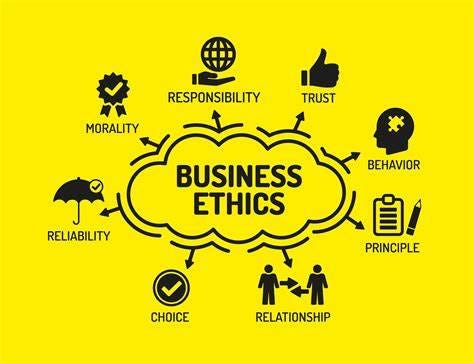

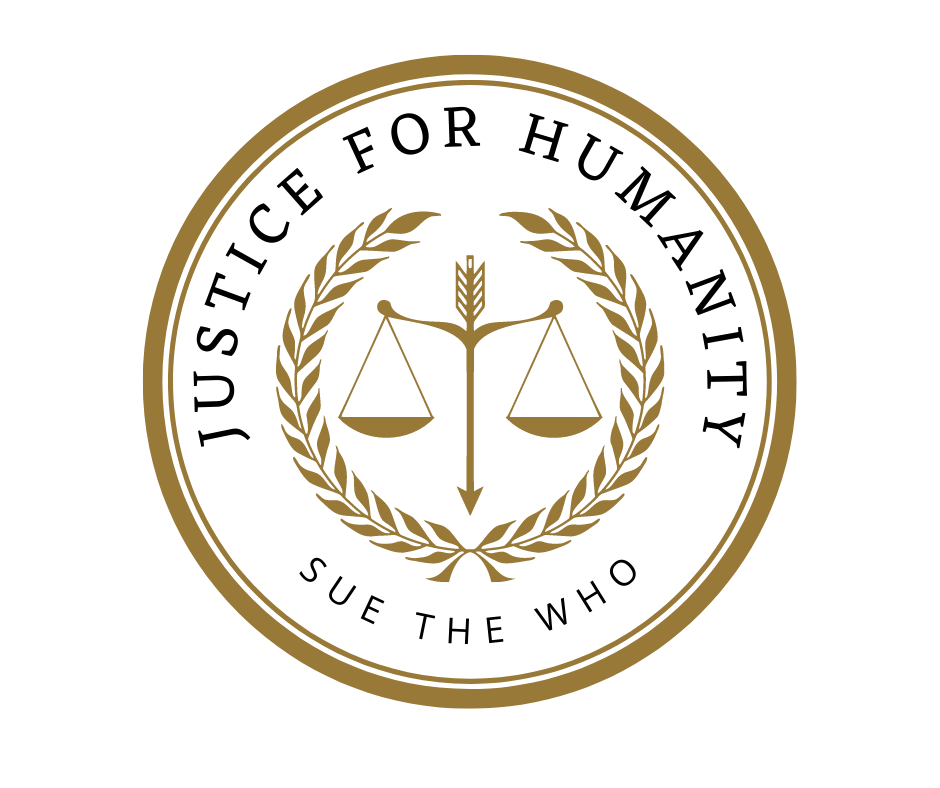

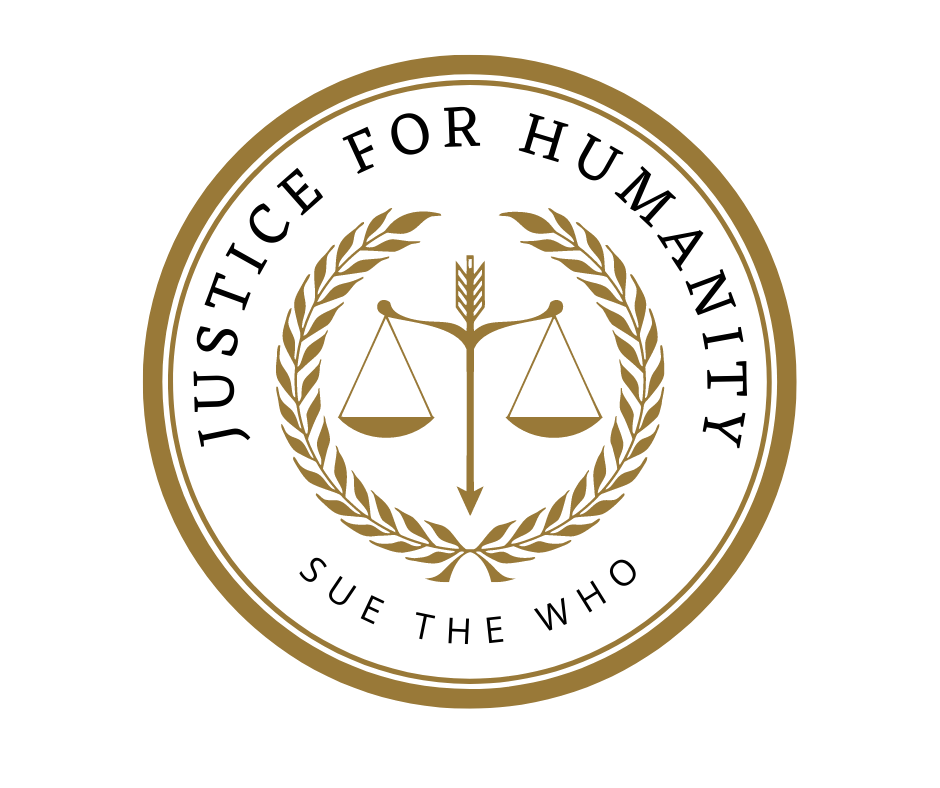
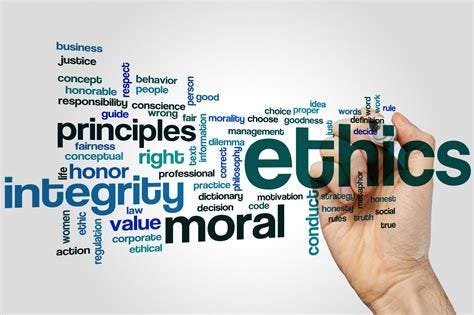
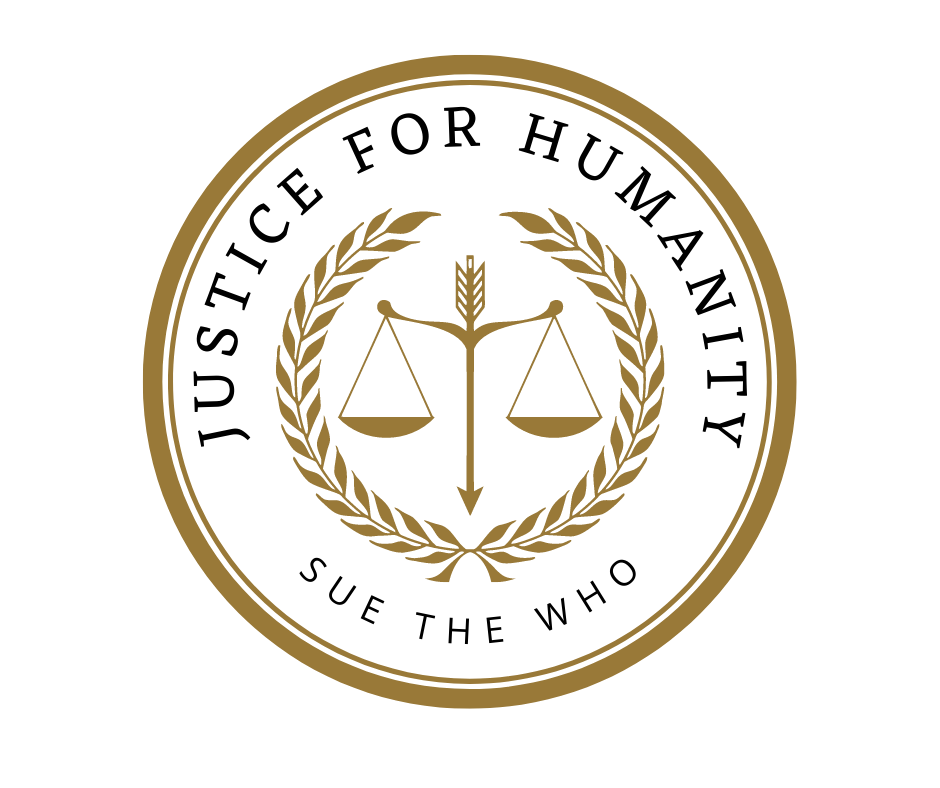
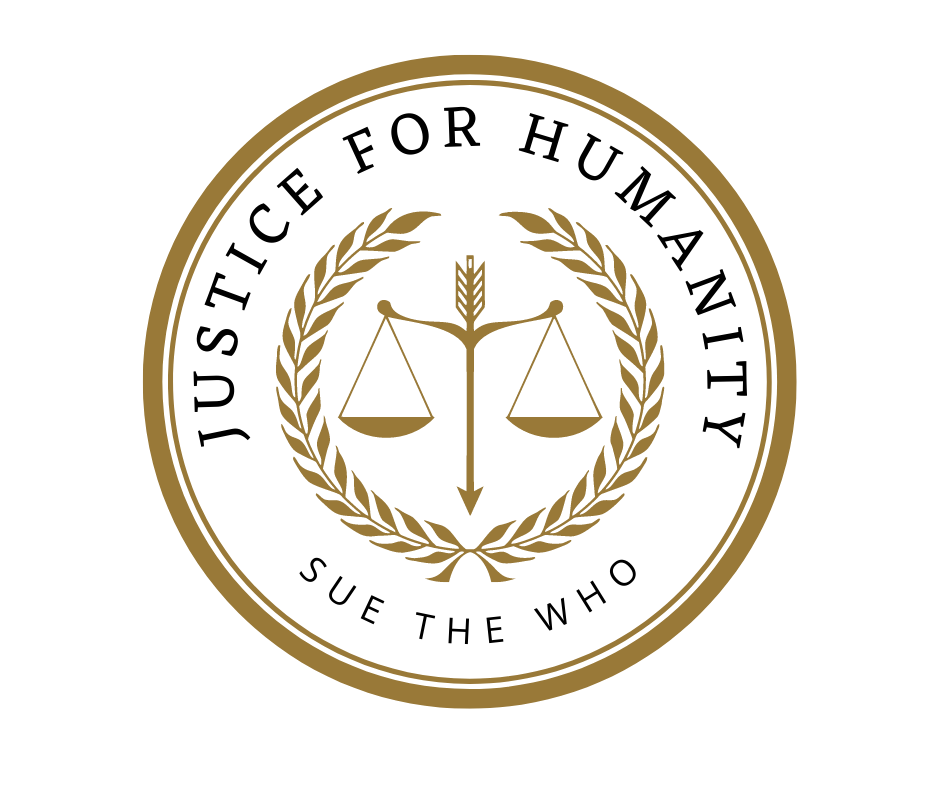

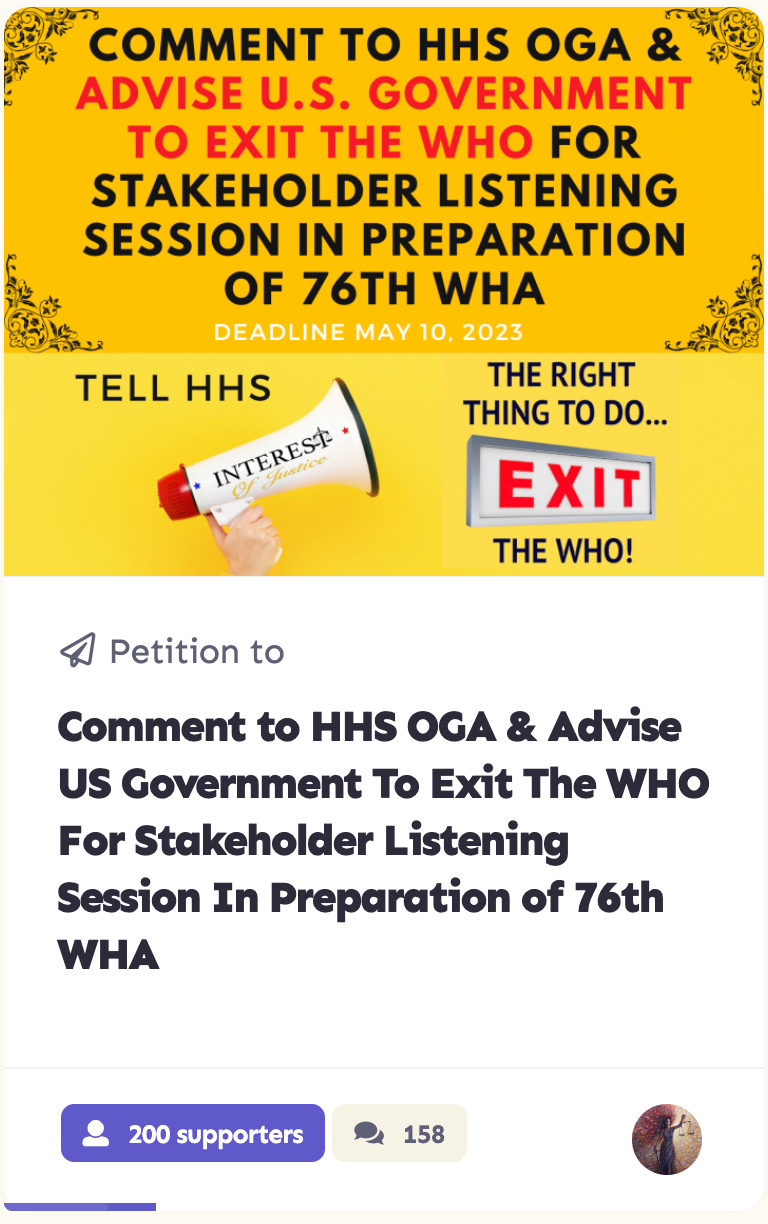

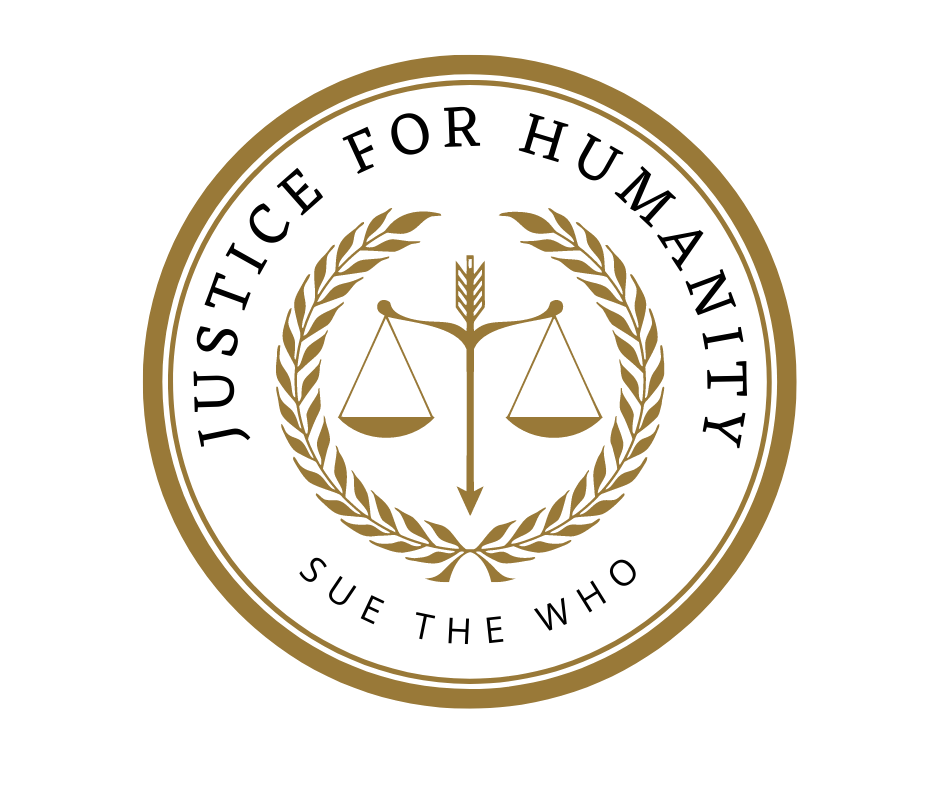
Yes!
Hi!
I think you are giving the wrong link. This must be the correct one:
Bridging the gap between ethics and decision-making in pandemics
Report of the WHO Pandemic Ethics and Policy Summit
https://apps.who.int/iris/bitstream/handle/10665/365374/9789240065079-eng.pdf?sequence=1
The one you are sharing is
Emergency use of unproven clinical interventions outside clinical trials:
ethical considerations
https://www.who.int/publications/i/item/9789240041745
THank you for sharing!
Fabulous work